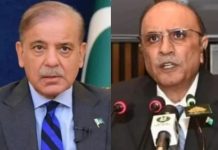-Says Pakistan ready for ‘positive & productive engagement with EU
-Expresses disappointment at the adoption of decree by the EU on blasphemy laws in
Pakistan
-Stresses on the need to appreciate religious sentiments
-Informs EU about Pakistan’s focus on anchoring its economic security
-Addresses he is European Parliament’s Foreign Affairs Committee virtually
By Asghar Ali Mubarak
ISLAMABAD: Foreign Minister Shah Mahmood Qureshi told European Union lawmakers on Wednesday that no armed or pressure group would be allowed to challenge and dictate government policy and that the government had taken firm action against radical groups.
Virtually addressing the European Parliament’s Foreign Affairs Committee, the foreign minister said: “We have firmly moved against radical groups after the recent protests. I can assure you that no armed or pressure group is being allowed to challenge the writ of the state and dictate government policy.”
Qureshi said that the world was witnessing a rise in Islamophobia thus there was a need to show “common resolve” to fight intolerance and incitement to violence on the basis of religion or belief.
He expressed disappointment at the adoption of the resolution by the European Parliament on blasphemy laws in Pakistan and said the discourse on the issue had reflected a “lack of understanding of blasphemy laws and associated religious sensitivities in Pakistan and in the wider Muslim world”.
Qureshi stressed on the need to appreciate religious sentiments related to the Holy Prophet (peace be upon him) and religious symbols, adding that while Pakistan valued freedom of expression, it should not be used to hurt religious feelings.
“Wilful provocations and incitement to hate and violence must not be allowed and be universally outlawed.
“Our government has taken concrete steps to deescalate the situation arising from the publication of hurtful sketches and desecration of the Holy Quran in Europe,” said FM Qureshi.
The European Parliament had earlier adopted a resolution calling for a review of the GSP+ status granted to Pakistan in view of an “alarming” increase in the use of blasphemy accusations in the country as well as the rising number of online and offline attacks on journalists and civil society organisations
The resolution had called on the Government of Pakistan to “unequivocally condemn” incitement to violence and discrimination against religious minorities in the country.
Mr. Qureshi said, Pakistan was ready to play its part for positive and productive partnership with the European Union as enormous potential existed in areas of trade, climate change and digitization, adding, the Pak-EU Strategic Engagement Plan signed in June2019 had ushered in a new phase in relationship.
Qureshi mentioned that Pak-EU relationship had provided a solid foundation and framework for cooperation in multiple domains, including) political and defence, trade and investment, promotion of democracy, rule of law, good governance and human rights, migration and mobility, sustainable development, education and culture and science and technology.
He expressed satisfaction that Pak-EU relationship was moving steadily in a positive direction in all spheres of cooperation and expressed commitment to “remain engaged to further expand our multidimensional partnership”.
‘Policy of restraint and peaceful coexistence’
The foreign minister added that geopolitical fault lines were being revived and getting deeper and “mutual trust and respect among states is eroding.”
“Existing conflicts are getting complex, new disputes are emerging, threats from terrorism are ever evolving and challenges emanating from hybrid and cyber threats are reshaping the security paradigm across the world. Misinformation and fake news are being spread as tools of state craft.”
Qureshi said Pakistan believed in the policy of “restraint and peaceful coexistence” thus its regional perspective was shaped and guided by the principles of Quaid-i-Azam Mohammad Ali Jinnah: a foreign policy based on friendliness and goodwill towards all the nations of the world.
“Pakistan is well poised to assume an even greater role as a responsible and responsive member of the comity of nations.
“We want to anchor our international engagement in economic cooperation and the link between peace and development. Our focus is shifting from geopolitics to geo-economics,” emphasized the foreign minister.
He said Pakistan was focused on anchoring its economic security on the following principles:
• Connectivity by promoting trade, transit and energy flows among Central, South Asia and the Middle East
• Providing economic basis as a development strategy
• Peace within our borders and beyond
“Peace and stability in Afghanistan are paramount in realising our vision of regional economic integration and transregional connectivity,” Qureshi said on the importance of the Afghan peace process for Pakistan’s own goals.
He added that Pakistan had always supported a negotiated political settlement in Afghanistan through an Afghan-owned and Afghan-led peace process instead of a military solution.
“Pakistan and the European Union have a common interest in bring peace and stability to Afghanistan. As a shared responsibility, Pakistan will continue to play a role in facilitating the Afghan peace process.”
The foreign minister termed the current peace process a “historic opportunity” and cautioned vigilance against elements which would seek to destabilise peace and security.
He added that continued violence in Afghanistan remained a major concern and could lead to a rise in drug production and exodus of Afghans from the country after withdrawal of US and Nato forces.
“All parties to the conflict, including the Taliban, must agree on reduction in violence leading to a comprehensive ceasefire.”
Recognising the EU’s efforts and continued role in Afghanistan post-withdrawal to help in its reconstruction and development, Qureshi emphasised: “Pakistan-EU cooperation would be important in preserving the political, economic and social gains of past two decades, as well as rehabilitation of the Afghan refugees.”
Qureshi also addressed Pakistan’s broader regional aspirations and said it was “firmly committed to improving relations with all its neighbours, including India”.
“Unfortunately, our overtures for peace were not reciprocated by India. Instead, it unilaterally and illegally moved to change the status of Jammu and Kashmir, a UN recognised disputed territory, and vitiated the environment for dialogue. The onus is now on India to create an enabling environment.”
FM Qureshi stressed on the need for a solution to the Jammu and Kashmir dispute, calling it the “single biggest obstacle” for durable and lasting peace in South Asia.
“The region’s strategic stability is threatened by the growing conventional asymmetry between Pakistan and India; pursuit of discriminatory approaches by certain states to supply advanced military hardware and sensitive technologies; and adoption of offensive force postures and doctrines by India vitiate the atmosphere,” said the foreign minister, further urging EU authorities to take note of the EU DisinfoLab report which had unearthed a massive misinformation campaign by India against Pakistan.




